[orc]In March 2016, the CIC agreed to maintaining a daily order sheet within 6 months. There has been no progress since. Moreover, the CIC argued before the Delhi High Court recently that a daily order sheet is not needed. The transparency watchdog is unwilling to be transparent in its own functioning.
The Central Information Commission (CIC) that is setup to be the watchdog in the implementation of the Right to Information (RTI) act is unwilling to be transparent in its own functioning. This became evident by its recent submission made during the hearing of a case in the Delhi High Court.
The Background
The issue goes back to a writ petition (WP(C) 3550/2013) filed by Mr. R K Jain in the Delhi High Court in 2013 alleging that the CIC agreed on something during the hearing of an appeal (including those held via a video conference) and concluded something else when the final order came out. He cited one of his cases as an example where the finding and the conclusion arrived at by the CIC was contrary to what had been conveyed during the hearing of the appeal. He urged the court to issue directions to the CIC to maintain a record of the proceedings.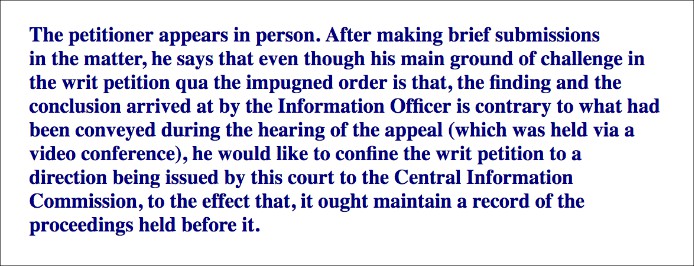
The court issued directions in 2016
In March 2016, the court stated that the CIC’s records must reflect the true and correct state of affairs and cited an order of the Punjab and Haryana High Court directing the State Information Commission to maintain daily order sheets. During the hearing, the CIC’s counsel also stated that it was willing to maintain daily order sheets, but sought some time to evolve a procedure. In is then the court gave CIC, six months to start maintaining daily order sheets.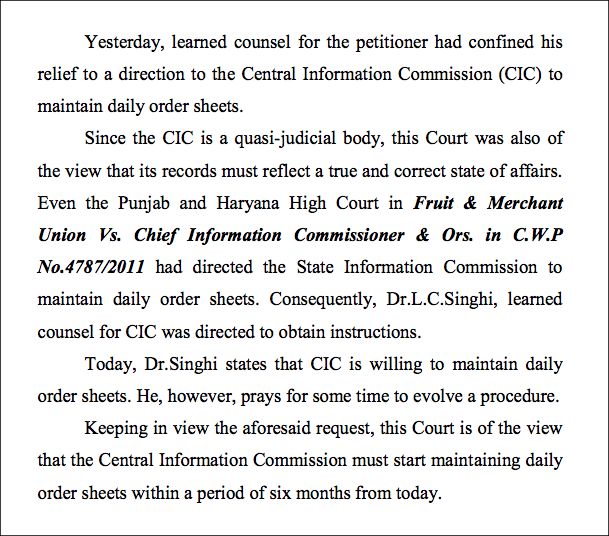
‘What is a daily order sheet? – CIC’s strange question’
In January 2017, RTI activist C J Karira filed an application with the CIC requesting copies of the daily order sheets being maintained by the CIC following the Delhi High Court directions in March 2016.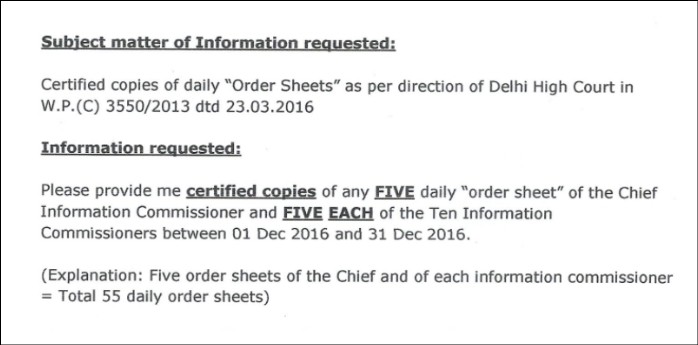 In its response, the Central Public Information Officer (CPIO) of the CIC stated that the information requested is not clear while the application was very clear and sought daily order sheets. It has to be noted that the CIC filed a proforma of daily sheet in the Delhi High Court in December 2016.
In its response, the Central Public Information Officer (CPIO) of the CIC stated that the information requested is not clear while the application was very clear and sought daily order sheets. It has to be noted that the CIC filed a proforma of daily sheet in the Delhi High Court in December 2016.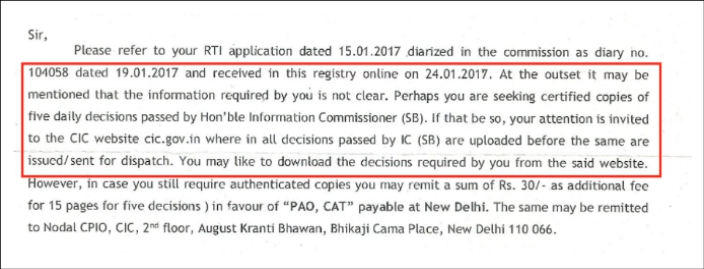 After that, the CIC did share a proforma of the daily sheet to Mr Karira. While they shared a proforma, the CIC hasn’t implemented the directions of the court in maintaining a daily order sheet.
After that, the CIC did share a proforma of the daily sheet to Mr Karira. While they shared a proforma, the CIC hasn’t implemented the directions of the court in maintaining a daily order sheet. Delhi High Court rules that the CIC has to maintain the daily order sheet
Delhi High Court rules that the CIC has to maintain the daily order sheet
When the case came up for hearing recently recently, for compliance of its earlier orders, the CIC’s counsel argued that there was no requirement of maintaining daily orders since most of the cases are decided in a single hearing. The court found this argument unacceptable and maintained that the functioning of the CIC must be transparent. In its order, the court directed the CIC to upload the daily order sheet for every appeal/complaint hearing within 3 days from the date of hearing. The court also mentioned that the CIC had agreed to maintaining the daily order sheets in March 2016.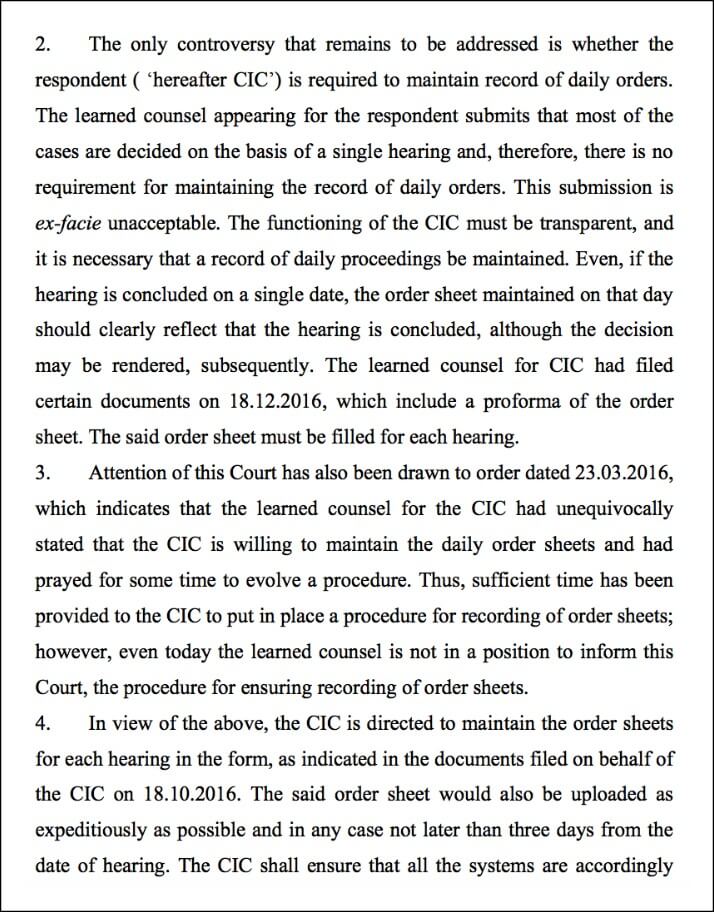
What does the CIC want to hide?
There have been multiple complaints about CIC’s order containing a conclusion that is contrary to what had been conveyed during the hearing. There have also been complaints about undue delay in delivering the final judgment after the hearing. As the watchdog of the RTI act, the CIC should be at the forefront of championing the cause of transparency. But for some strange reason, it wants to shy away from transparency in its own functioning. What does it want to hide?
Featured Image: Central Information Commission


